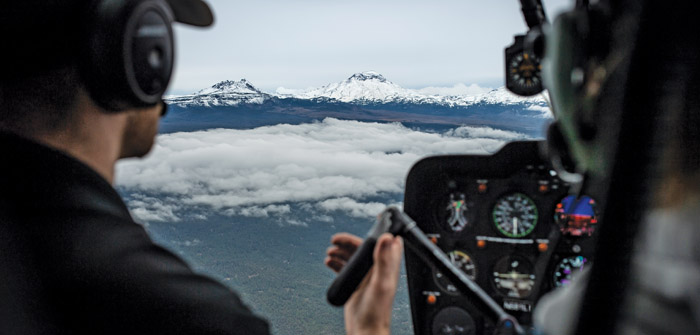(Photo by Rosie Day)
Q: What is your background in aviation?
A: I have been a professional aviator for 40 years, owning and operating a flight school in Reno, Nevada, for ten years, working as a corporate and jet charter pilot, and spending the last seven-plus years as the airplane degree advisor and classroom instructor for the COCC aviation program. I became program director in 2023.
Q: What sets the COCC aviation program apart from its competition?
A: We serve over 200 students who come from all over the U.S., including a large population of veteran students. We are one of the few two-year degree programs still enrolling veteran students in aviation and flight-training degree programs, simply because of the complexity of administering to the regulations within the U.S. Department of Veterans Affairs. Our classroom instructors are all experienced aviation professionals with industry experience. We believe a solid foundation in “ground school” studies and mentoring is as important as the flight training.
Q: Can you describe the areas of flight study COCC offers, for helicopter, fixed-wing and unmanned aerial systems?
A: COCC aviation offers professional pilot associate degree programs for all three disciplines. Classes at the campus consist of a few general education subjects and electives, and a variety of aviation subjects consistent with the certification standards of the Federal Aviation Administration (FAA). Our students graduate with their associate degree in professional aviation and all FAA flight certifications required to become a professional aviator, including flight instructor certifications.
Q: What sort of prerequisites or testing is needed in advance?
A: A high school diploma and an FAA Class 1 or 2 medical certificate in order to apply for the program. There is currently a waitlist for the airplane degree, so students should apply at least six months in advance.
Q: Is there financial aid available, beyond veterans’ benefits?
A: Yes, students not only have federal financial aid opportunities, but many scholarships also become available as the students complete their first pilot certification.
Q: How soon will students be up in an aircraft with an instructor?
A: Flight training begins the very first term, along with classes to support that training. Students engage in flight-training sessions approximately three times per week.
Find out how you can achieve a career takeoff. Visit cocc.edu/programs/aviation to learn more.



